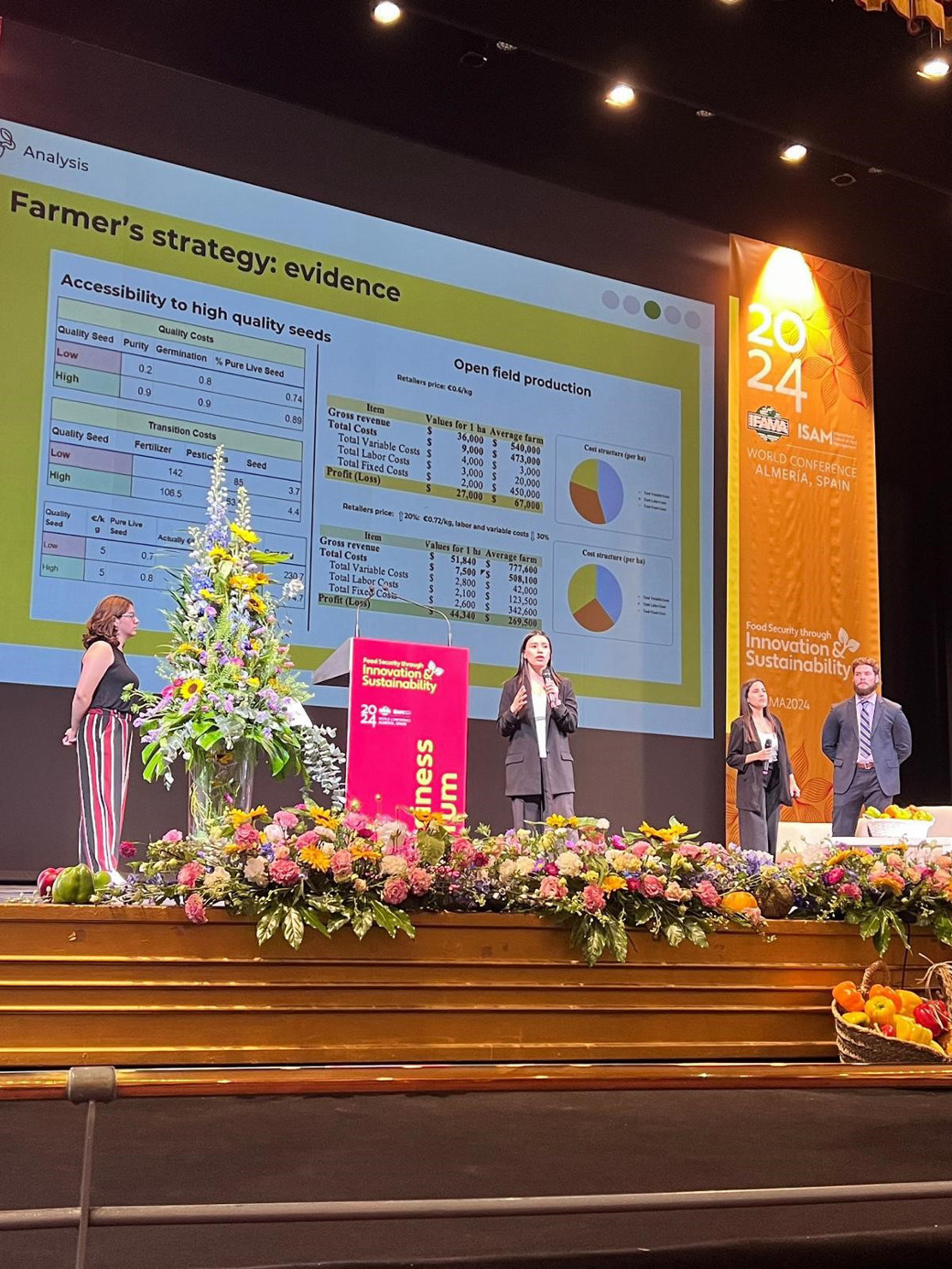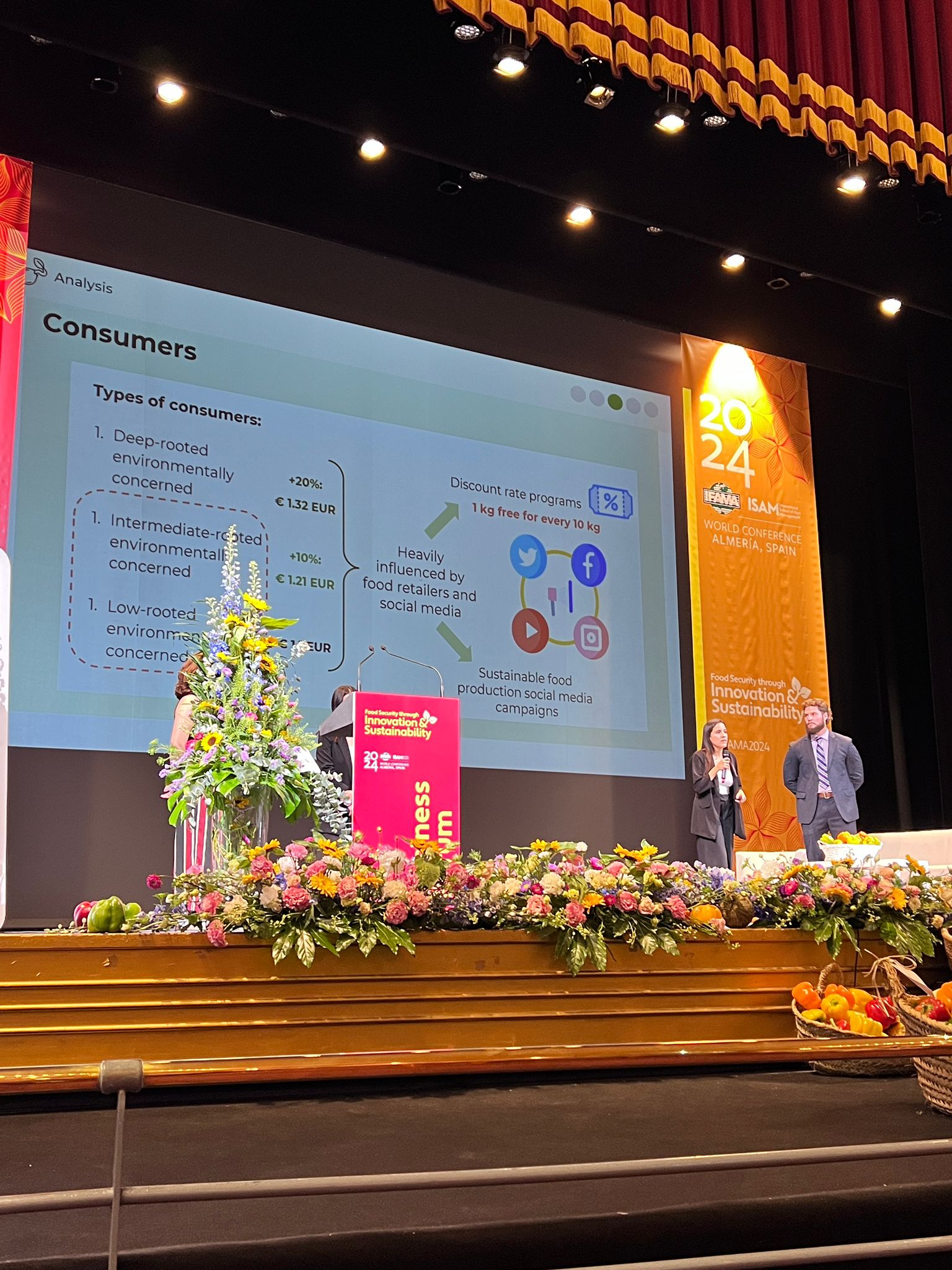
By María Camila Ulloa Gómez and Alejandra Armesto Gómez
A team of Purdue University graduate students emerged victorious at the prestigious 2024 IFAMA Student Case Competition held in Almeria, Spain, from July 17-20. Alejandra Armesto, Camila Ulloa, Ivanna Carrillo Siller, and Owen Zakrzewski secured first place among 15 global teams, showcasing innovative solutions to challenges in sustainability and innovation within the seed industry. The competition, organized by the International Food and Agribusiness Management Association (IFAMA), brought together leading scholars, students, industry professionals, and policymakers to address critical issues in the global food and agribusiness system. The Purdue team faced a rigorous challenge, analyzing and solving a case study titled "Innovation and Sustainability Across the Agri-Food Sector Start with Seed" in just four hours. Alejandra Armesto, a master's student in Agricultural Economics at Purdue, and Camila Ulloa, a Ph.D. student in Horticulture and Landscape Architecture, both participated in the Undergraduate Research Experience Purdue-Colombia (UREP-C) program in 2021. This experience gave them a strong foundation for their success in the competition.
While working on her second bachelor's degree from the Universidad Nacional de Colombia, Alejandra was awarded the UREP-C scholarship. This opportunity allowed her to work on science diplomacy and open enrollment policies at Purdue. Alejandra is a graduate researcher at the North Central Region Center for Rural Development (NCRCRD), contributing to research on rural communities. This fall, Alejandra will start her Ph.D. program at Penn State University in the Department of Agricultural Economics, Sociology, and Education. Camila Ulloa earned her double bachelor's degree in business management and accounting from the Universidad Nacional de Colombia. She is deeply involved in the Diverse Corn Belt project, a five-year, multi-disciplinary research initiative. Her work focuses on designing surveys for various stakeholders in the U.S. agricultural industry and providing insights into procurement dynamics to enhance diverse production in the Midwest.
The competition consisted of multiple rounds, with teams refining their strategies to address extended challenges in each stage. In the initial four-hour session, teams had to analyze the case study and present their solutions in 15 minutes to a panel of four judges, including past IFAMA president Raj Vardhan. The Purdue team successfully advanced to the next round, along with seven other teams. The second round introduced an extended version of the case study, focusing on the impact of the European Green Deal and Farm to Fork regulations on the team's proposed strategy. With a two-year implementation timeline, the Purdue team had to consider regional and global implications beyond the seed sector and the E.U. The case study highlighted the seed industry's mission to introduce innovative crop varieties to reduce agricultural environmental impact, improve farmer outcomes, and ensure long-term food supply. It emphasized the importance of fostering collaborative partnerships to ensure a sustainable future through innovation, noting that by 2050, the world will require 50% more food to sustain its population. Teams had to address critical questions such as: What is the role of innovation and sustainability? Does innovation lead to sustainability or vice versa? How do we address the polarization caused by innovation?

